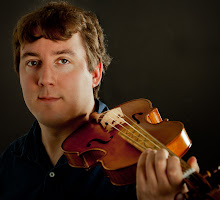Welcome to truthandtaste, a blog which explores the nature of truth, taste and beauty in classical music, with a focus on early music.
I chose the words truth and taste because they are for me the two most important goals for which I strive in the performance and understanding of music. On the one hand, truth represents everything that can be discovered about the music and its context in history. This ideal is central to anyone influenced by the historically-informed performance (HIP) movement of the last sixty years. Like archaeologists digging through the dusty archives of the past, we immerse ourselves in the context of the music through the study of original manuscripts, relevant treatises or primary sources of the time, historical instruments available in the period, and any other information that can draw us into the world of the composer and his music. Truth, at its core, is fact. It is a fixed entity, insofar as we can correctly establish it.
However, as everyone who performs or listens to music knows, there is the other side of the coin, the side dictated by taste. Taste, of course, is subjective, and, unlike truth, it changes and develops over time. Individual taste is as unique as a fingerprint; no two people in the world hear or feel music exactly the same way. This is both wonderful and frustrating, particularly when you are rehearsing with colleagues and failing miserably to convince them of your approach to the music!
Truth and taste must of course intertwine and feed off each other. Taste without truth can often lead you astray. Many musicians are only minimally concerned with truth as I have described it. For these people, it is enough to sit down with the music in front of them, and be led by instinct and intuition alone. This is perfectly fine, but could end in some seriously strange results, at least to those who may know truths about the music that would drastically change the approach. In contrast, truth without taste inevitably leads to a dry, academic approach to music. This approach is the main problem that 'modern' musicians have with 'early' musicians. There is an assumption that all we care about is blindly obeying the rules of the treatises, playing at the correct pitch, or executing the ornaments exactly as they have been indicated. This kind of approach can indeed be found in many early HIP recordings and is no doubt sometimes still evident today. Also evident are recordings that show no concern at all for historical context. Both extremes are, in my opinion, a shame; understandable, no doubt a product of their time, but nevertheless a shame.
My point is that truth alone can only get you so far. Taste and good instinct alone can only get you so far. Although individually they may very well get you to lovely places, it is the combination of both that can lead to the most satisfying and beautiful results.
A quote from Johann Joachim Quantz's treatise On Playing the Flute, published in 1752, was the inspiration for me to start this blog. I had only ever used this book as a reference tool, to dip into here and there whenever I wanted to find out an appropriate 18th century solution to a musical problem. In doing so, I had never read the preface, in which Quantz states:
"...one should remember that at times it would take too long, at times would be impossible, to give demonstrative proofs of matters that nearly always depend on taste. Anyone who does not wish to trust my taste, which I have diligently endeavoured to purify through long experience and reflection, is free to try the opposite of that which I teach, and then choose what seems best to him."
What a revelation! It is in this spirit that I acknowledge that anything I say is just my personal opinion. What matters to me is the journey; towards truth, towards good taste.
Please leave comments if you wish, please pick my arguments apart, please give me ideas for future posts! Thanks, and I hope you enjoy what you read.

No comments:
Post a Comment